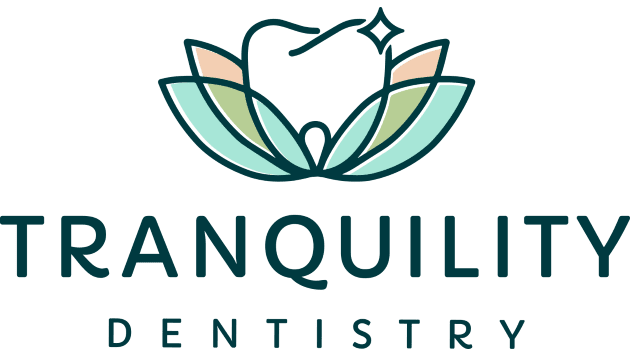
Dental Care for Different Life Stages
From Childhood to Seniors Dental Health
Embarking on a journey towards optimal oral health involves recognising the evolving needs at different stages of life. From the moment the first tooth appears in infancy to the unique challenges faced by seniors, dental care is a lifelong commitment. In this comprehensive exploration, we will delve deeper into tailored dental care advice for specific age groups, addressing the distinctive oral health needs at each stage of life. Whether you find yourself guiding a child’s dental care, navigating the challenges of adolescence and young adulthood, or entering the golden years of seniority, understanding how to care for your teeth at every life stage is crucial for fostering a lifetime of healthy smiles.
Childhood (0-12 years):
- Early Dental Care:
- Initiating oral care during infancy is crucial. Gently clean your baby’s gums with a soft cloth after each feeding before the first tooth emerges.
- Once that first tooth makes its appearance, transition to a small, soft-bristled toothbrush and a pea-sized amount of fluoride toothpaste.
- Regular Dental Check-ups:
- Schedule your child’s inaugural dental visit by their first birthday, establishing a foundation for regular dental check-ups throughout childhood.
- Regular dental check-ups every six months become essential for monitoring oral development, detecting potential issues early, and ensuring a healthy smile trajectory.
- Healthy Diet Habits:
- Instil healthy eating habits early on by limiting sugary snacks and drinks, laying the groundwork for cavity prevention.
- Encourage a balanced diet rich in fruits, vegetables, and dairy products to promote not only oral health but overall well-being.
Adolescence and Young Adults (13-24 years):
- Orthodontic Considerations:
- Monitor teeth alignment during adolescence and consider orthodontic evaluation if needed. Addressing alignment concerns early on can prevent more significant issues later.
- Emphasise the importance of maintaining good oral hygiene habits, especially for those wearing braces or other orthodontic appliances.
- Oral Hygiene Independence:
- Reinforce the importance of regular brushing and flossing as young adults gain independence in their oral care routines.
- Encourage the use of fluoride mouthwash for added protection against cavities and overall oral health.
- Wisdom Teeth Awareness:
- Be vigilant regarding the potential emergence of wisdom teeth during late adolescence and early adulthood.
- Regular dental check-ups are instrumental in monitoring wisdom tooth development and addressing any associated concerns.
Adulthood (25-64 years):
- Continued Preventive Care:
- Sustain a commitment to regular dental check-ups and cleanings every six months. Consistency in preventive care aids in identifying and addressing dental issues promptly.
- Address any dental concerns promptly, preventing potential complications and maintaining optimal oral health.
- Watch for Teeth Grinding:
- Be mindful of teeth grinding, especially during stressful periods. Incorporate stress management techniques into daily life.
- Consider using a night guard to protect teeth from wear and tear caused by bruxism, preserving dental health.
- Avoid Tobacco and Limit Alcohol:
- Acknowledge the increased risks associated with smoking and tobacco use, including heightened susceptibility to gum disease and oral cancer.
- Moderate alcohol consumption, as excessive intake can contribute to dry mouth, a condition that poses additional oral health risks.
Seniors (65+ years):
- Increased Oral Health Monitoring:
- Recognise the heightened importance of regular dental visits for seniors. Frequent monitoring helps address any emerging issues promptly.
- Stay vigilant for potential concerns such as dry mouth, cavities, and gum disease, common oral health challenges in this life stage.
- Denture Care:
- If utilising dentures, prioritize daily cleaning and removal at night to maintain optimal oral hygiene.
- Regular check-ups ensure proper denture fit and address any issues that may arise, fostering long-term comfort and functionality.
- Maintain Good Nutrition:
- Embrace a nutrient-rich diet that supports overall health, including oral well-being.
- Stay hydrated to prevent dry mouth, a common issue among seniors that can contribute to various oral health problems.
- Oral Cancer Screenings:
- Recognise the critical role of regular oral cancer screenings for seniors. Early detection is pivotal for successful intervention.
- Report any unusual symptoms, such as persistent sores or changes in oral tissues, promptly to your healthcare provider.
In navigating the intricate journey of dental care through different life stages, individuals can embrace a proactive and informed approach. From the gummy smiles of infancy to the wisdom acquired in senior years, understanding, and addressing unique oral health needs contribute to overall well-being. By instilling good oral hygiene habits in childhood, maintaining preventive care in adulthood, and adapting to the changing needs of seniors, individuals can navigate the dental care journey with confidence. Ultimately, a lifelong commitment to tailored dental care lays the foundation for a radiant smile that mirrors a life well-lived.
